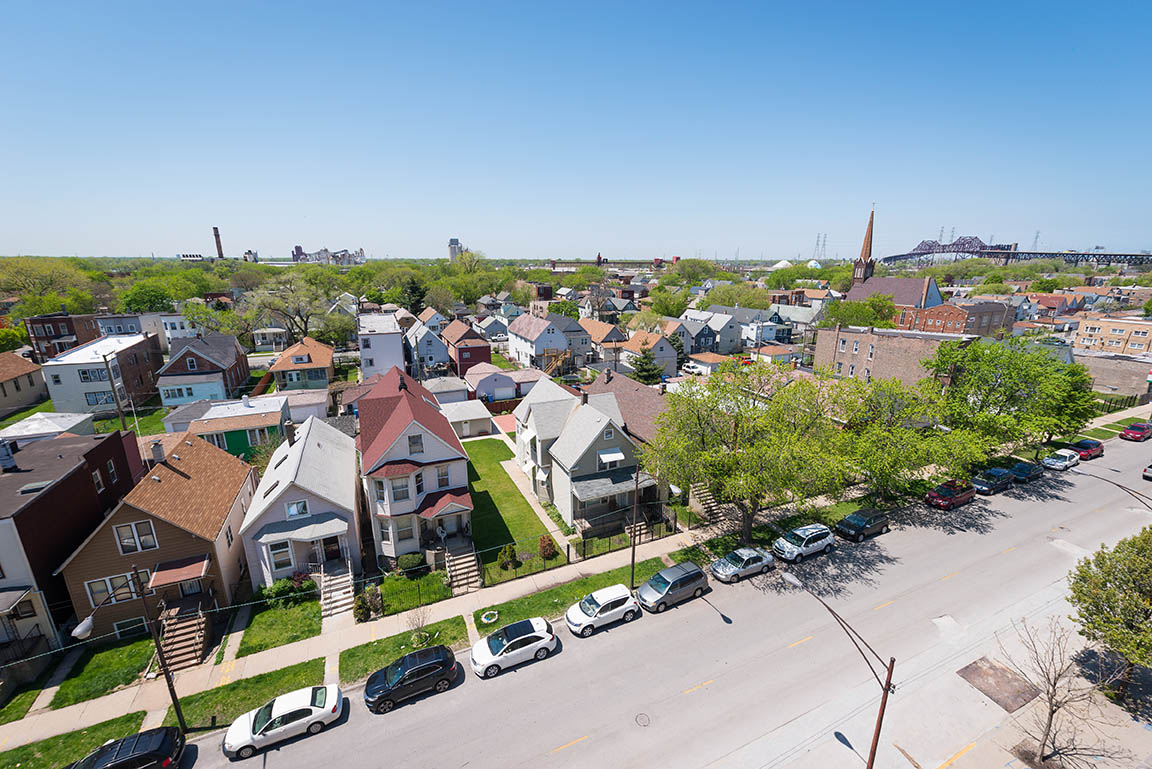Housing and Homelessness

Since taking office in 2011, Mayor Emanuel has supported affordable housing in every neighborhood by expanding the Affordable Requirements Ordinance, implementing and expanding transit-oriented development, and building or preserving more than 60,000 affordable homes and apartments. Mayor Emanuel elevated housing and homelessness as key policy issues when he launched the Department of Housing in 2018 and engaged stakeholders across the city in creating the new Five-Year Housing Plan. From 2011 to 2018, the annual Point in Time Count decreased by 17 percent, representing a substantial decline in the number of individuals experiencing homelessness. The City also piloted innovative programs like co-located public housing and library projects designed by world-class architects and new, effective homelessness interventions like the Flexible Housing Subsidy Program, rapidly linking frequent utilizers of emergency services to stable, supportive housing.
-
In December 2018, City Council approved Mayor Emanuel’s Five-Year Housing Plan, including $1.4 billion in city support and leveraged resources for housing initiatives between 2019-2023. The plan details a commitment to improve and preserve more than 41,000 units of affordable housing with a focus on innovative programs to support homeownership, affordability, and supportive housing for vulnerable populations.
-
In June 2018, Mayor Emanuel proposed the Chicago Department of Housing, a new City department exclusively focused on supporting access to housing as a core component of neighborhood development. The new department, up and running in 2019, is responsible for implementing Chicago’s affordable housing strategies as defined in the 2019-2023 Housing Plan.
-
In 2019, Mayor Rahm Emanuel, Chicago Public Library and the Chicago Housing Authority cut the ribbon on three innovative co-located housing and library developments. Each of the new branches features mixed-income housing, Early Learning Play Spaces, and dedicated workforce development support for job-seekers. All three developments were designed by top architecture and design firms and were selected following a design competition, part of Mayor Emanuel’s vision to bring world-class design to Chicago neighborhoods.
-
The City’s Single Room Occupancy (SRO) Preservation Fund has maintained affordability for more than 1,400 affordable housing units by working with nonprofit and mission-driven developers to acquire, preserve, and rehabilitate 11 SRO properties. These buildings provide housing opportunities for some of the city’s most vulnerable residents and most at-risk of homelessness. The City has invested more than $83 million in SRO preservation and has leveraged more than $50 million in private resources.
-
Upon taking office in 2011, Mayor Emanuel launched a year-long effort between the Department of Family and Support Services (DFSS) and the Chicago Alliance to End Homelessness (now All Chicago) to redevelop Chicago’s Plan to End Homelessness. This effort resulted in the August 2012 release of Plan 2.0, a seven-year action plan focused on homelessness prevention, the “housing first” model, and wraparound services for youth and families. Since the plan launched, the City has housed 400 households via Rapid Rehousing, expanded shelter space for youth by 33 percent and established three regional drop-in centers which serve nearly 1,400 homeless youth annually.
-
In 2016, Mayor Emanuel launched a city-wide task force dedicated to addressing and reducing homelessness in Chicago. The Task Force to Reduce Homelessness focuses on improved coordination between city and sister departments, increased efficiencies in service delivery, and identifying additional resources to devote to these efforts.
-
In December 2017, Mayor Emanuel announced the Flexible Housing Pool (FHP) a one-of-a-kind supportive housing model that combines both housing/rental subsidy expertise and intensive case management to effectively house residents who are experiencing homelessness. The FHP establishes a rental subsidy source that allows the City of Chicago to quickly house and provide supportive services to some of Chicago’s most challenging and costly homeless populations, including individuals who are high utilizers of emergency rooms and the criminal justice system.
-
In 2018, Mayor Emanuel announced the Families in Transition (FIT) initiative, an unprecedented joint program between the Department of Family and Support Services, Chicago Public Schools, the Chicago Coalition for the Homeless, and the Corporation for Supportive Housing. The FIT program helps identify families, via CPS students, who are experiencing homelessness or are “doubled up.” Since its launch last year, the program has assessed more than 150 families and successfully placed 100 families into new supportive housing units from the Low-Income Housing Trust Fund.
-
In 2015, Mayor Emanuel announced the End Veterans Homelessness Initiative (EVHI) coupled by the Plan to End Veteran Homelessness. The effort has helped house more than 2,500 veterans since January 2015.
Read more about the Housing and Homelessness progress made over the last eight years.
